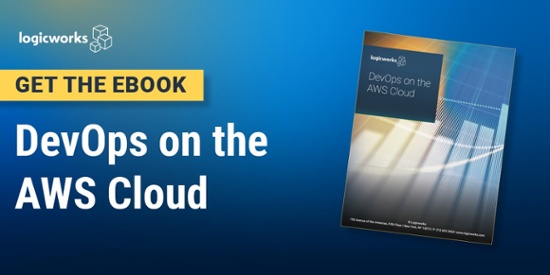The following is part of Logicworks’ Engineer Spotlight series on the amazing engineers and technical staff that make the work we do possible. To talk to Tenpa or someone at Logicworks, contact us. To learn more about job postings, visit our Careers page.
Over the last twenty plus years, I have watched technology trends come and go. I grew up taking apart IBM computers and have been an IT support guy, datacenter engineer, Windows administrator, database administrator, and more.
All that changed on the first day I used Amazon Web Services (AWS).
It was 2013 and on a whim, I attended an AWS Summit in New York City. I signed up for a beginner session on how to spin up a single instance in AWS. Within three minutes, I had a server up and running, a task that would typically take me three weeks and involve network consultants, procurement documentation, or a waiting period.
Using AWS for the first time convinced me that I was looking at the future of computing, and I wanted to be part of it. The decision to quit my comfortable gig to work with a fast-growing AWS Premier Partner was an easy one.
My story is not unique. Public cloud adoption continues to accelerate at a break-neck pace, and those that have not updated their skills to adapt to the evolving landscape are going to be left behind. Yet it is still important for us so-called “old guard” engineers to raise our skill levels and advocate for our peers to get our heads in the cloud.
Friends and Enemies
In college, I was tasked with running a couple of aging Pentium 2 servers as part of my on-campus job. Of course, I had no previous experience managing servers, so it was a considerable challenge for me. This was also before StackOverflow and YouTube videos, so I had to figure everything out on my own. This method of learning how to manage machines without much guidance through trial and error was the norm for me and almost any systems engineer or DBA or IT person.
This hands-on understanding of the inner workings of the systems we manage is what makes us good at our jobs, and also lends a great deal of skepticism when we are told how amazing the public cloud is because it is so “user-friendly” and “easy”. What makes the public cloud so attractive to typical “old guard” IT person is not the ease of use or the cost savings or that you can run self-managing databases. The greater appeal lies in one simple fact: the cloud lets us orchestrate complex resources in ways that were never before possible. The cloud makes easy (boring) jobs faster, and it makes hard jobs simpler in that you can focus on the hard stuff (higher-level orchestration) and not on the mindless, manual work that always gets in the way. This means that we have more power, not less, to control our resources.
Be the Conductor, Not the Clarinet
With the increase in projects and growing expectations of faster delivery, our ability to architect complex systems rather than run them, and then use tools like configuration management to control those complex systems is incredibly valuable to our colleagues and employers.
Before joining Logicworks, I supported multiple datacenters, and helped the company migrate out of an expensive DR site onto AWS cloud. The process took around 9 months to complete, and was filled with a steep learning curve that included understanding how to theoretically replicate the components of each application on AWS, countless hours visiting the datacenter to make sure everything went according to plan, and of course a fair share of mistakes. When it was all said and done, the migration to AWS saved that company $120,000/yr in colocation rental fees alone and additional savings gained from hardware and licensing costs. The experience value for me far surpassed the numbers on the balance sheet.
I was able to see first-hand that this is not a DIY style project. And despite common perceptions, the cloud does not “just work”. There is still a great deal of maintenance needed to successfully run on AWS cloud, and managed service providers are the best resource to help companies build environments properly, update, patch, and proactively manage to enable greater security, scalability, and velocity.
As a Solutions Architect here at Logicworks, I am able to apply both my experiences in migrating to AWS as well as knowledge gained from helping countless clients understand which AWS resources to use, how to construct their networks (for security or compliance), and which resources belong where. I help other engineers like me avoid the mistakes I made in my first AWS migration. And along with the other engineers at Logicworks (who know a lot more about configuration management and automation than I do), we make AWS environments self-healing and/or containerized and/or HIPAA compliant, etc. Now that I have worked on dozens of complex AWS environments, I know best practices and common pitfalls.
What I do everyday is of a completely different order of magnitude than what I did ten years ago. Maybe ten years ago I could spend a day to fix one hard drive. Now I spend that day building out entire systems and with automation, I can make sure that the changes I make later are persistent and documented.
In other words, I have become the conductor of vast systems rather than the firefighter of broken machines — virtual or otherwise.
I do not know whether AWS will still be enterprises’ #1 choice in ten years. But for myself and for Logicworks, what is important is that we deliver more value as engineers and as businesses to our internal and external customers with higher-level management, orchestration, and automation. It is always more important that we learn the practice of building and governing large systems — the tools are always secondary. This is what AWS finally gives us the time to learn. In a way, I did not quit my job for AWS, but for what AWS taught me: how to architect and maintain a complex system.
So go and learn AWS or teach your team AWS. But along the way, make sure you are learning not just about S3 and EC2, but about what makes a system great. This is what will serve you and your business ten months from now and ten years from now, whether you are on AWS or not.
By Tenpa Kunga
Solutions Architect, Logicworks
Logicworks is an enterprise cloud automation and managed services provider with 23+ years of experience transforming enterprise IT. Contact us to learn more about our managed cloud solutions.



No Comments